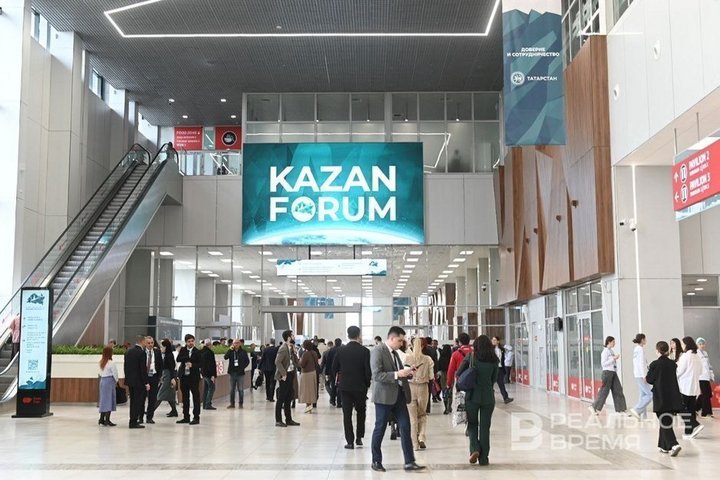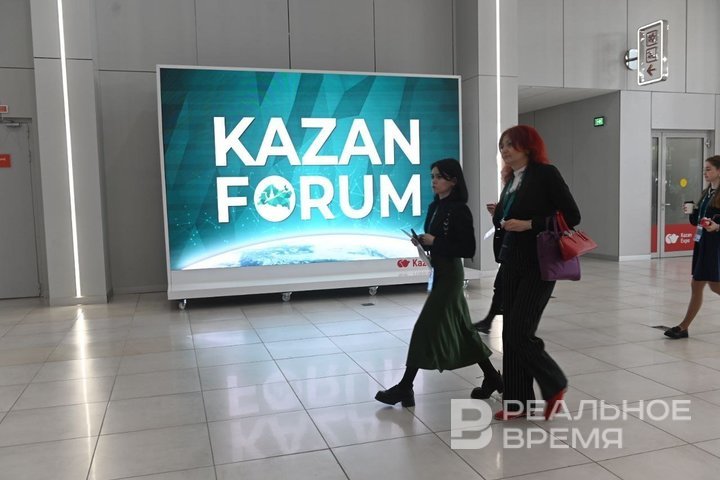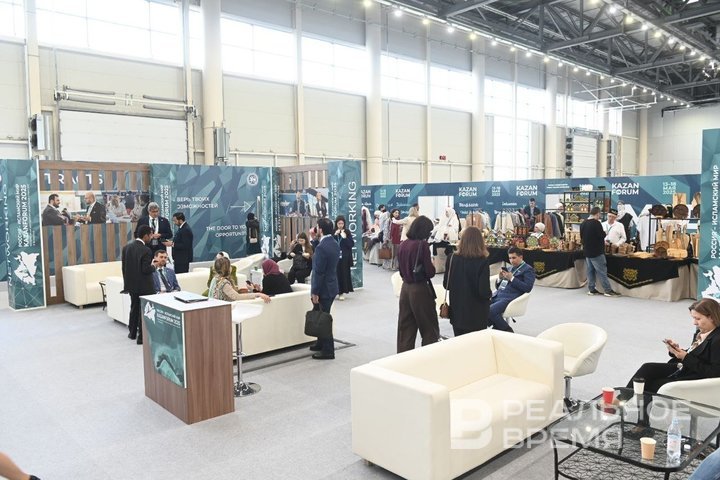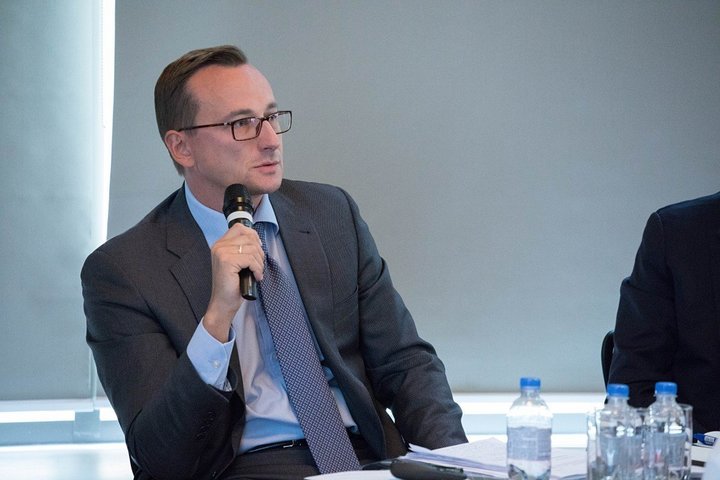Under Sharia law: experiment on implementing Islamic banking to be extended for another 3 years

The future of Islamic banking in Russia became one of the key topics at KazanForum. The partnership financing experiment began in Russia in September 2023 across four regions — Tatarstan, Bashkortostan, Dagestan, and Chechnya — and was originally scheduled to end on 1 September 2025, but it is already known that it will be extended for another three years. At the project’s launch, high hopes were placed on it as a way to circumvent Western sanctions. However, the Islamic model failed to offer an alternative solution for international settlements. Furthermore, not all participants in the Russian market wished to enter the official register of the Central Bank of Russia. Officially, 31 organisations operate in the scheme, with the market volume estimated at 2.8 billion rubles. Unofficially, the volume is almost ten times higher. The challenges, issues, and legislative gaps faced by companies operating under Sharia law were discussed in the review by Realnoe Vremya.
Partnership finance: “white” and “grey”
“In the mid-1990s, the first publications on Islamic banking appeared in business press and academic journals. However, its legalisation in Russia began only in 2023, when the experiment on the development of partnership financing was launched,” reminded Andrey Zhuravlev, Senior Research Fellow at the Centre for Arab and Islamic Studies of the Institute of Oriental Studies at the Russian Academy of Sciences.
According to official data from the Bank of Russia, 31 organisations have become participants in the experiment — including seven banks, three microfinance organisations specialising in entrepreneurial financing, two investment platforms, one management company, and one registrar. Seven participants belong to regional authorities, two are subsidiaries of participating banks, and one is a subsidiary of a bank not listed in the Central Bank of Russia’s register. Twelve other organisations have neither financial status nor affiliation, although some are interconnected, Zhuravlev characterised the official partnership finance market.
Together, these companies have placed 2.8 billion rubles in assets and attracted 3.8 billion rubles. Forty-five percent of the active portfolio consists of transactions equivalent to mudaraba and musharaka; 43% of the portfolio comprises transactions equivalent to murabaha.

Alternative sources to the Central Bank of Russia suggest that the number of companies operating under Sharia law in Russia is higher — around 50 — with assets reaching 20 billion rubles.
According to Zhuravlev, the partnership financing experiment is expected to be extended until 1 September 2028, and a draft law aimed at improving certain aspects of the experiment has already entered the public domain. At present, he estimates that there is unmet demand for Islamic finance services in Russia.
At the same time, circumventing financial sanctions through the legalisation of Islamic banking in Russia has not succeeded — “the Islamic financial model does not possess any features that provide solutions to the most pressing issues of the current economic agenda regarding payment organisation and settlements,” the expert noted. However, he is convinced that the partnership financing mechanism is a foundation for the future.
Why is it difficult for Islamic banks to compete with Western ones?
“Islamic finance represents only a small fraction of global volumes, but it is important in a number of key regions for Russia, including the Persian Gulf. We see that investments from the Persian Gulf are currently reluctant to flow into Russia. There is a chance, through the development of partnership financing, to improve the image of the Russian Federation and attract private investors as well,” believes Nikolay Surkov, Senior Research Fellow at the Middle East Studies Centre of IMEMO RAS. “An important point is that Russia today is striving to become an exporter of halal products. However, success in this area also requires the presence of halal finance.”
On a global scale, the Islamic finance market is growing. Even if the experiment proves unsuccessful, this issue will return within five to seven years, Surkov is convinced. Today, Islamic banks in other countries also face high operational costs and find it difficult to compete with Western banks. Primarily, they appeal to those for whom the ethical aspect of finance is important.

“Since 2009, the issue of Russian legislation being unprepared for Islamic banking has been discussed. However, for example, a number of organisations, including the Amal Financial House, began operations even then, and it turned out that the legislation does not prevent working and earning according to Sharia law,” said Khasan Mestoev, CEO of Tasnim Financial House (Ingushetia). “We established the company in 2020, but we are not yet included in the Central Bank of Russia’s register. Since 2023, we have been completing questionnaires and submitting data to the Bank of Russia.”
Today, Islamic companies, he says, do not have access to the benefits and subsidies available to conventional banks, which is why they are currently non-competitive.
Islamic finance finds it difficult to compete with traditional banking, which has developed over millennia, agrees Marat Sadriyev, the director of the Islamic Banking Centre at Ak Bars Bank: “Public awareness needs to be raised; government support and tax incentives are necessary — it is difficult to make these products competitive relying solely on market participants.”
“There are not many banks participating in the experiment yet, but it provides an opportunity to enter this market calmly, quickly, and without disruptions. When the experiment ends, it will be more difficult for smaller organisations to enter the market,” believes Sadriyev.
The partnership financing market in Russia also needs unified standards. “We visited eight foreign countries to study international experience. Everywhere the approach is different. Recently, we opened an office in Dagestan, and the region told us that this matter needs to be reconsidered, as they have their own requirements. Therefore, unified standards for Islamic banking are necessary,” the banker said.
According to Sultan Tagaev, Minister of Finance of the Chechen Republic, only two companies from Chechnya are included in the Central Bank of Russia’s register, while in reality there are many more with significant capitalisation. For example, the Sheikh Zayed Fund does not seek to join the Bank of Russia’s register, the minister cited as an example. “Until we make changes to the Tax Code, the efficiency of Islamic organisations will always lag behind. Tax legislation must take into account Islamic norms, which, for example, do not include corporate income tax. Otherwise, you could run an experiment for 30 years, and it will still be ineffective,” Tagaev is convinced.
Kazan could become Russia’s largest project finance hub
On the sidelines of KazanForum, it was revealed that Tatarstan is preparing to become one of the first regions to issue project sukuk — Islamic bonds. VEB.RF has decided to participate and be the first to implement a project attracting partnership financing, said Konstantin Vyshkovsky, the deputy chairman of VEB.RF. Gazprombank will act as the underwriter for the issuance.
VEB.RF is preparing to issue partnership bonds for the Alabuga Special Economic Zone totalling around 5 billion rubles. “For VEB.RF, this is a fairly modest figure, but given the current state of the Russian partnership financing market, it will be a significant amount,” Vyshkovsky said.

Funds are being raised for the Alabuga project to build industrial infrastructure in the petrochemical sector. It will be a modern, promising facility, the details of which Vyshkovsky is currently unable to disclose.
“The task is challenging, but it will be accomplished. We expect that in the near future, already this year, Russia will finally see its first project sukuk. And if our project is positively received by the market, we will scale it up,” he promised.
The undisputed leaders in sukuk issuance worldwide are Malaysia, Saudi Arabia, and Iran, where the volume of Islamic bond issuance significantly exceeds that of conventional bonds, explained Denis Shulakov, the first vice-president of Gazprombank. Sukuk also holds great potential for development in Russia: the country has around 20–30 million Muslims, a regulatory framework has already been established, infrastructure is in place, and there is demand for new sources of financing. Additionally, there is a shortage of instruments operating in accordance with Sharia law.
Kazan, according to Shulakov, could become a centre for partnership financing, as the region is home to 1.5 million Muslims. “Here we see the interest of the regional leadership, as well as a broad base of issuers and investors,” he assessed.
“There is confidence that with the participation of Gazprombank and VEB.RF, the topic of partnership banking will take off,” commented Alexander Aksakov, the director of the Infrastructure Bonds Division at DOM.RF. “The global partnership capital market will exceed $5.3 trillion this year. In Russia, the base is very low — only 2.8 billion rubles. This is a very small amount. The threshold of 1 trillion rubles is not far off if the market continues to promote such products.”
“Undoubtedly, the market today expects an expansion of the list of regions involved in the experiment, but first the effectiveness of the pilot must be proven, Aksakov believes.
“DOM.RF is also ready to join the issuance of infrastructure sukuk. The participation of development institutions will add trust to this market. If we act as pioneers, then in the future a greater number of players will join this effort,’” Aksakov said.
The St. Petersburg International Mercantile Exchange has also started considering the implementation of partnership financing instruments. Kazbek Pshinshev, assistant to the president of the exchange, noted that there is currently strong demand in society for “ethical investments,” regardless of investors’ religious beliefs.